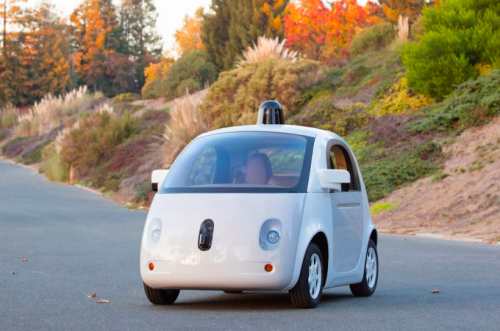July 31, 2015 weblog
Air-quality sensors on cars at heart of Aclima-Google partnership

Sensors to map air pollution represent an ambitious project involving Google. A number of tech sites are talking about its activities in strapping Aclima sensors to Street View cars. Aclima is in the business of delivering "internet-connected sensor networks."
Their work cuts across three platforms—indoors, outdoors and on vehicles. Referring to the latter, Aclima said, "Vehicles and buses that drive repetitive routes through cities offer perfect platforms for Aclima sensing technology. We outfit vehicles to take community-scale snapshots of pollution and greenhouse gases. In just a few days of driving, an interconnected urban system comes into focus."
Aclima CEO Davida Herzl said many factors inform the quality of life we experience in cities in a video titled "Aclima and Google —How Cities Live and Breathe."
On any city day one can see what Melissa Lunden, director of research, Aclima, sees, as told in the video: "We've got buses. We've got trucks. We've got cars in traffic buildups....all are emitting pollutants that go into the mix of the city."
Aclima is on a fundamental mission toward improving human health through environmental protection. They talk about their plug-and-play sensor modules that are calibrated and adapted to provide detailed, environmental data. The networks measure a broad spectrum of variables, including noise, humidity, carbon monoxide, particulate matter and methane. A fuller list of the variables can be found on the company's site.
Google has been working with Aclima for the past year and a half, said Senior Writer Josh Constine in TechCrunch.
The initial test was done in Denver, said Lunden, where they were able to instrument three Google Street View vehicles.
Constine in TechCrunch said the three cars collected 150 million air quality data points over a month of driving around Denver. "They measured for chemicals that are hazardous to breathe, like nitrogen dioxide, nitric oxide, ozone, carbon monoxide, carbon dioxide, methane, black carbon, particulate matter, and Volatile Organic Compounds (VOCs)."
Dave Gershgorn in Popular Science pointed out that "This partnership also comes on the heels of a Google pledge to reduce its own environmental impact. The company joined 12 other industry leaders in signing the American Business Act on Climate Pledge on Monday, pledging to power its Bay Area headquarters on 100 percent renewable energy and reduce water consumption."
Constine said "Independent scientific analysis confirmed that the mobile sensor system worked for collecting street-by-street data and could improve upon the regional network of sensors operated by the Environmental Protection Agency."
Aclima blogged recently: " To assess if air quality is meeting – or exceeding – public health standards, the EPA relies on an extensive network of stationary equipment, placed in urban areas, that measure carbon monoxide, nitrogen dioxide, sulfur dioxide, particulate matter, hydrocarbons and photochemical oxidants. The monitoring network is designed for air quality regulation, but does not give a detailed picture of a community or urban area such that people can get a real sense of what air pollution is in their immediate surroundings. Aclima's mobile sensing platform on Street View cars complements EPA's regional air measurement network by introducing a new body of knowledge about air quality at the street level."
Over the next year they will test to see how viable it is to measure air pollution in more cities. They are planning on expanding to the Bay area, working with community groups and scientists to explore possibilities. This may be a transformative step to advancing air quality monitoring. "Our hope is that one day this information is as accessible as the weather," said Herzl, where people can access the information on a daily basis and that, together, make smarter decisions that add up to change.
On the other hand, there is the question of just how much impact air pollution data unleashed on a city population, down to the streets where they live, might have. How much will residents and leaders be willing to put up with findings, once they learn more about the air quality they breathe? Could such hyper-local data make changes that affect the well-being of residents?
Herzl said citizens, scientists, policy-makers and governments around the world need access to this information. She said for the first time there can be a human-scale understanding of what is happening in our environment, and how it is directly affecting us.
Herzl offered an example to TechCrunch: "We know that trees absorb pollution, NO2 specifically. If we can know where pollution hotspots are, we can know where to put green spaces."
© 2015 Tech Xplore

















